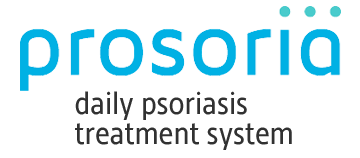
Psoriasis is the most prevalent immune-mediated disease in the United States, affecting an estimated 7.5 million Americans of all ages. While it most prominently affects the skin, psoriasis is not merely a cosmetic problem. Its symptoms can be extremely severe and have a significant impact on quality of life. About 60 percent of those with psoriasis reported that their disease negatively affected their everyday lives, even with the help of treatment plans. Plaque psoriasis is the most common type of psoriasis. Here’s a break down of common plaque psoriasis symptoms and what you need to know about them.
Plaque Psoriasis Symptoms
Plaque psoriasis is most often characterized by lesions that appear dry, red, raised, and often covered in a layer of silvery-white scales. These lesions, known as plaques, can be itchy and painful and may even crack or bleed. While plaques can appear just about anywhere on the body, including inside your mouth and on your genitals, they are most often found on the scalp, elbows, and lower back. The severity of these plaques can also vary from person to person. Where your plaques may be relegated to a small area and appear more like dandruff, someone else may have more severely inflamed breakouts spread all over the body.
In severe cases, psoriasis can also affect your hair and nails. Fingernails and toenails may grow abnormally and become discolored, pitted, or ridged. They may even loosen entirely from the nail bed or crumble.
Plaque psoriasis can potentially develop into psoriatic arthritis in some patients. An estimated 30 percent of those with psoriasis will also develop psoriatic arthritis. With psoriatic arthritis, the itchy, inflamed, scaly skin is also accompanied by swollen, painful joints characteristic of arthritis. Psoriatic arthritis can affect any joint, and while it’s not generally as severe as arthritis, psoriatic arthritis can still cause stiff joints and progressive joint damage that may potentially lead to permanent deformities for some.
Plaque Psoriasis Immune-Mediated Disease
While research is still needed to understand exactly what causes plaque psoriasis, doctors do know that psoriasis is an immune-mediated disease. Normally, your immune system acts to eliminate harmful microbes and prevent illnesses and infections. In immune-mediated disorders, the immune system malfunctions, mistakenly harming healthy cells, tissues, and organs.
With psoriasis specifically, a subtype of white blood cells known as T cells attacks healthy skin cells. In response, the body creates more skin cells and sends out other white blood cells known as neutrophils. The sudden speed up in the skin cells’ lifecycle results in new skin cells layering over each other, resulting in the large patches. The neutrophils naturally trigger the body’s inflammation response, causing the redness, pain, and itchiness of psoriasis.
The factors that contribute to the plaque psoriasis immune-mediated disease are still unknown, though research has found that genetics and family history play a significant role. About one-third of those with psoriasis also have a family member who has psoriasis.
Triggers for Plaque Psoriasis
Plaque psoriasis goes through cycles where it may not appear and then flare up for weeks to months before subsiding again, sometimes even going into remission. While these plaque psoriasis flare-ups aren’t always predictable, certain environmental and lifestyle factors can trigger them. By avoiding these triggers, you may be able to avoid flare-ups and prevent existing psoriasis from getting worse.
Actual triggers can vary from person to person, but some common triggers amongst plaque psoriasis sufferers include:
- Stress – Although stress may seem like a mental annoyance, it actually involves more physiological changes than you might realize. Stress causes the release of chemicals that can bring about a wide range of responses, including more inflammation and effects on your immune system, all of which makes way for more plaque psoriasis flare-ups.
- Illnesses and infections – Essentially anything that affects your immune system can also affect the severity of your psoriasis symptoms. Everything from earaches to bronchitis to even the common cold can cause an immune response, which unfortunately also means more white blood cells attacking skin cells. Strep throat, in particular, has been linked to cases of guttate psoriasis.
- Medications – Certain types of medications can interact with chemicals in your body and contribute to flare-ups.
- Cigarettes – Studies have found that smoking nearly doubles a person’s risk of psoriasis. Nicotine may alter the immune system, disrupt skin cell growth, and contribute to inflammation. However, cigarettes also contain thousands of other ingredients that are known to be unhealthy for you and may contribute to flare-ups as well.
One thing to know for sure is that plaque psoriasis is not contagious, meaning that you cannot “catch” it or give it to others.
Symptoms for plaque psoriasis can cause pain and discomfort and reduce your quality of life, but there are numerous treatments that can help you manage and reduce symptoms throughout every stage of your plaque psoriasis. Consult your doctor to see what might work best for you.
Sources:
- https://www.psoriasis.org/content/statistics
- https://www.psoriasis.org/about-psoriasis/types/plaque
- https://www.mayoclinic.org/diseases-conditions/psoriasis/symptoms-causes/syc-20355840
- https://www.ncbi.nlm.nih.gov/pmc/articles/PMC4206220/
- https://www.psoriasis.org/about-psoriatic-arthritis
- https://www.psoriasis.org/life-with-psoriasis/stress

